Annette Bening Quotes & Sayings (Page 10)
Annette Bening quotes and sayings page 10 (67 year old actress). Here's quote # 91 through 100 out of the 103 we have for her.
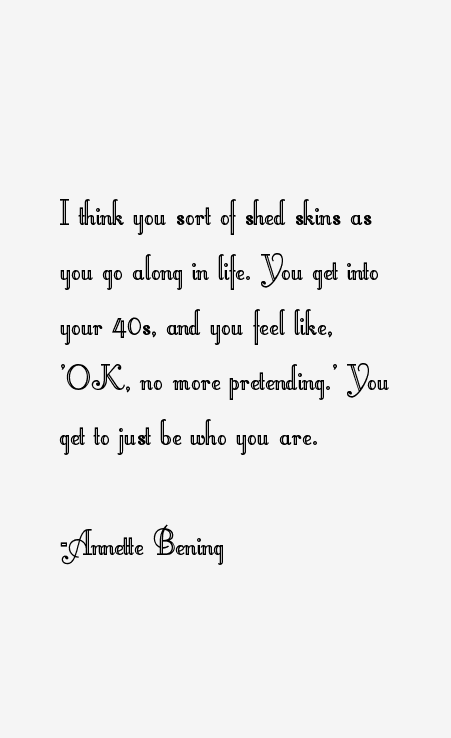
“I think you sort of shed skins as you go along in life. You get into your 40s, and you feel like, 'OK, no more pretending.' You get to just be who you are.”
“It's hard to make a living in this business. Unions aren't as strong as they used to be. For a journeyman actor - someone who doesn't have a famous name but has consistent work in theater or film or TV - it has become harder to get through, harder to raise a family.”
“Most women would say they relate to 'Hedda Gabler' - there's a part of her in them. Ibsen was writing about a deep ambivalence that many women feel about domesticity. I think about myself and friends of mine - we have some of Hedda's qualities and traits.”
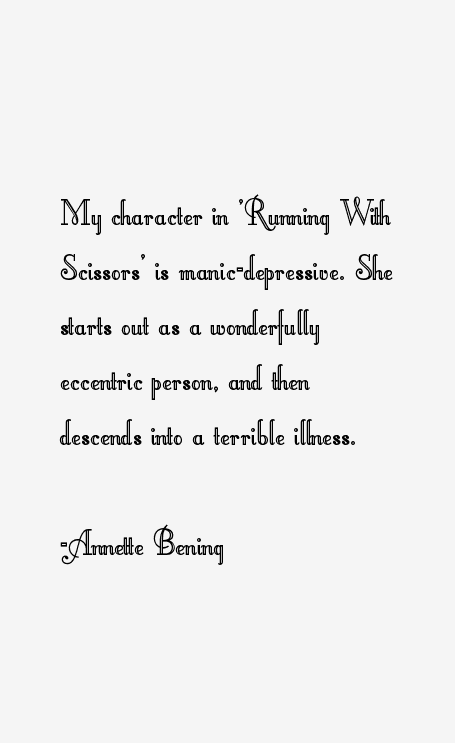
“My character in 'Running With Scissors' is manic-depressive. She starts out as a wonderfully eccentric person, and then descends into a terrible illness.”
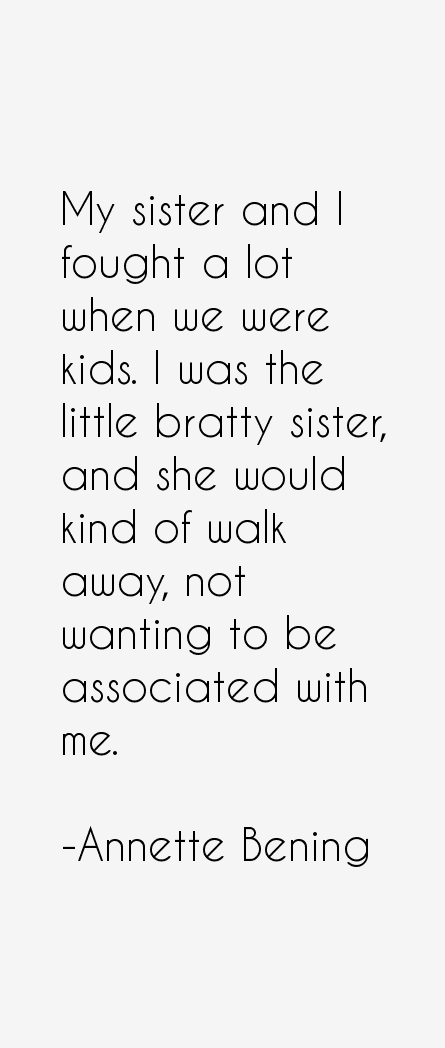
“My sister and I fought a lot when we were kids. I was the little bratty sister, and she would kind of walk away, not wanting to be associated with me.”
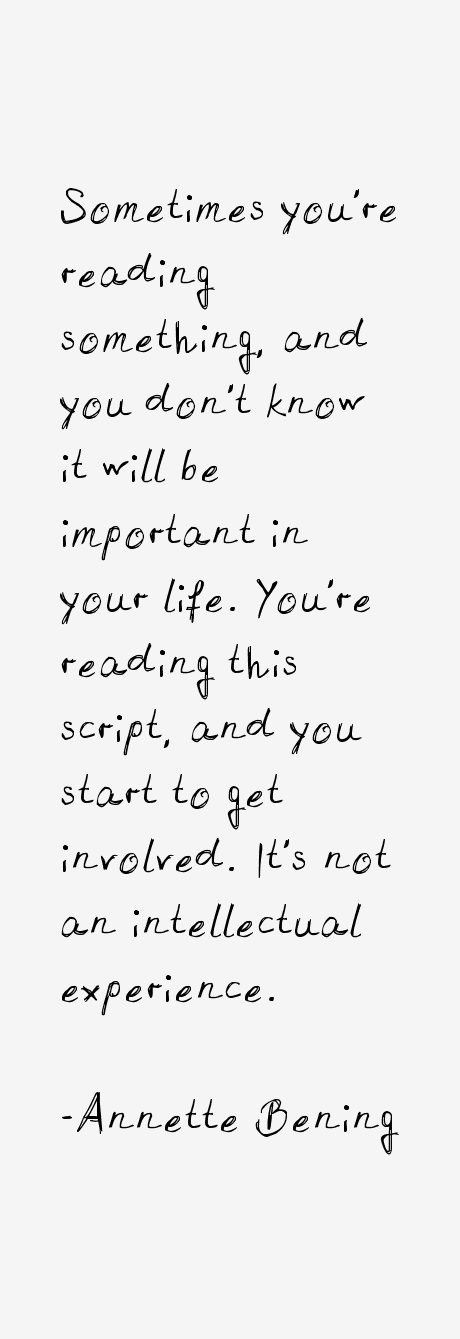
“Sometimes you're reading something, and you don't know it will be important in your life. You're reading this script, and you start to get involved. It's not an intellectual experience.”
“There's no question that you can explore aspects of yourself through roles that you play, and you get a chance to investigate yourself; that's healthy, and it's therapeutic in a way. But if you're indulging yourself, exploration at the cost of the story or the project, that's not good.”
“There's so much of our psychological makeup which is impermissible for us to explore because it's inappropriate or perverse or scary. I'm interested in exploring that in myself. I try to be honest with myself about everything that I feel. I'm not saying I'm able to do that all the time, but it's something I'm interested in.”
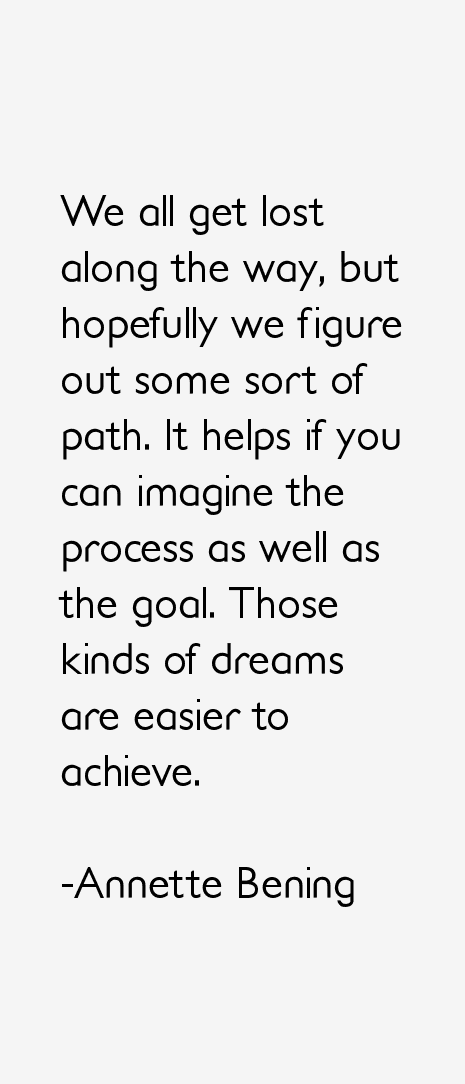
“We all get lost along the way, but hopefully we figure out some sort of path. It helps if you can imagine the process as well as the goal. Those kinds of dreams are easier to achieve.”
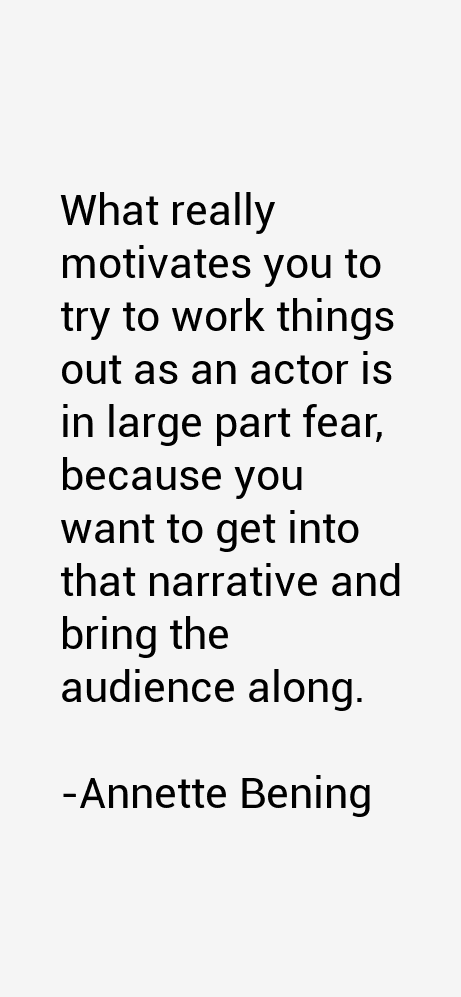
“What really motivates you to try to work things out as an actor is in large part fear, because you want to get into that narrative and bring the audience along.”
Annette Bening Quotes Rating
No Ratings Yet
Leave A Comment
























